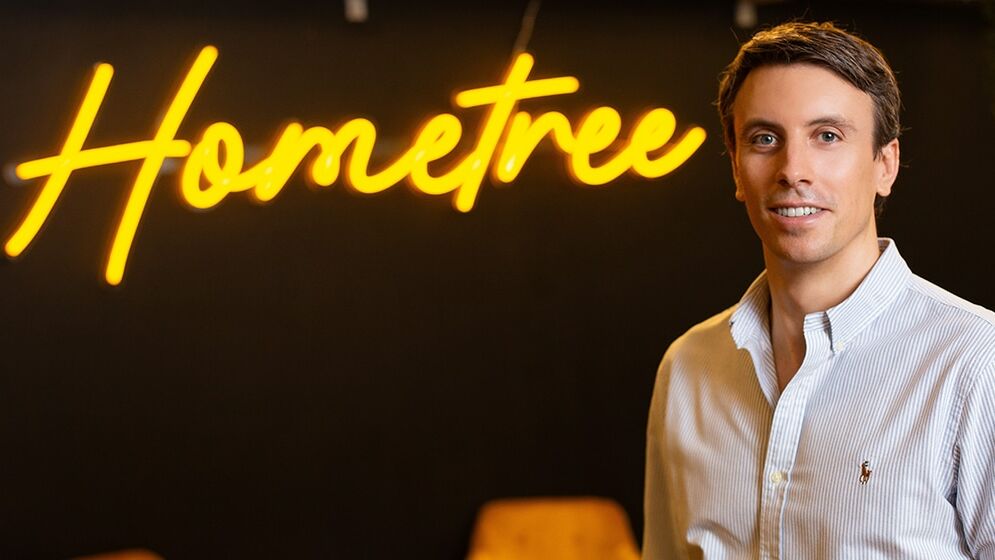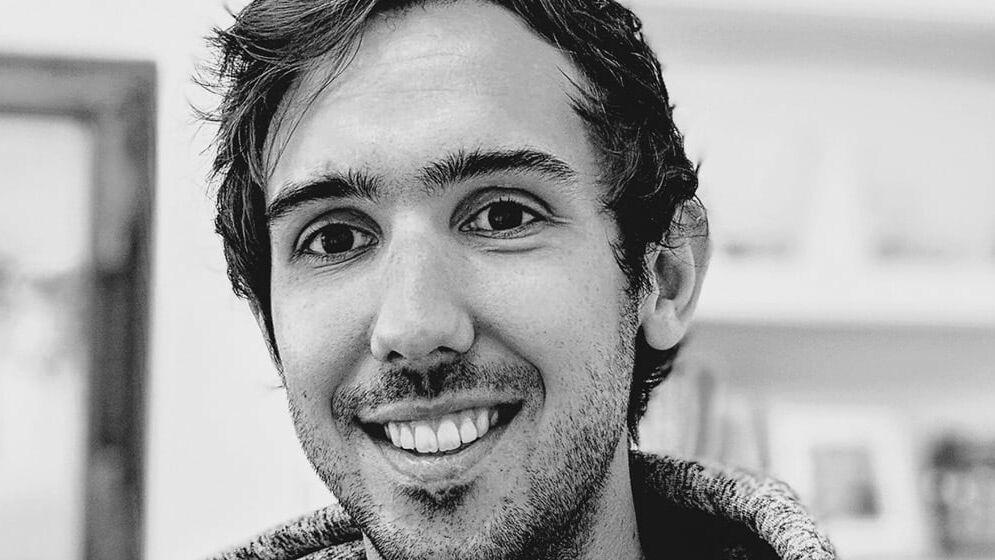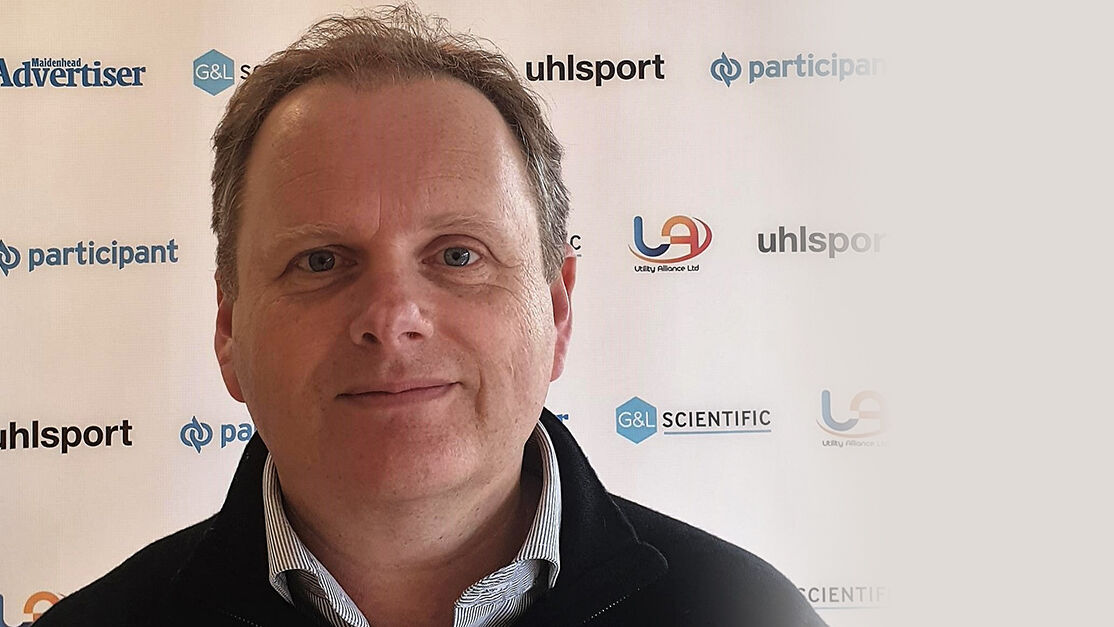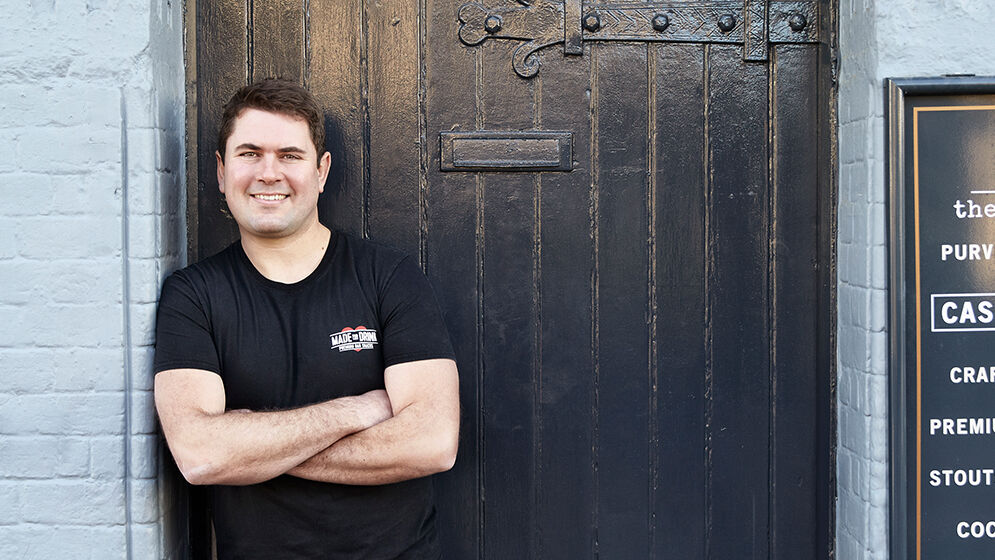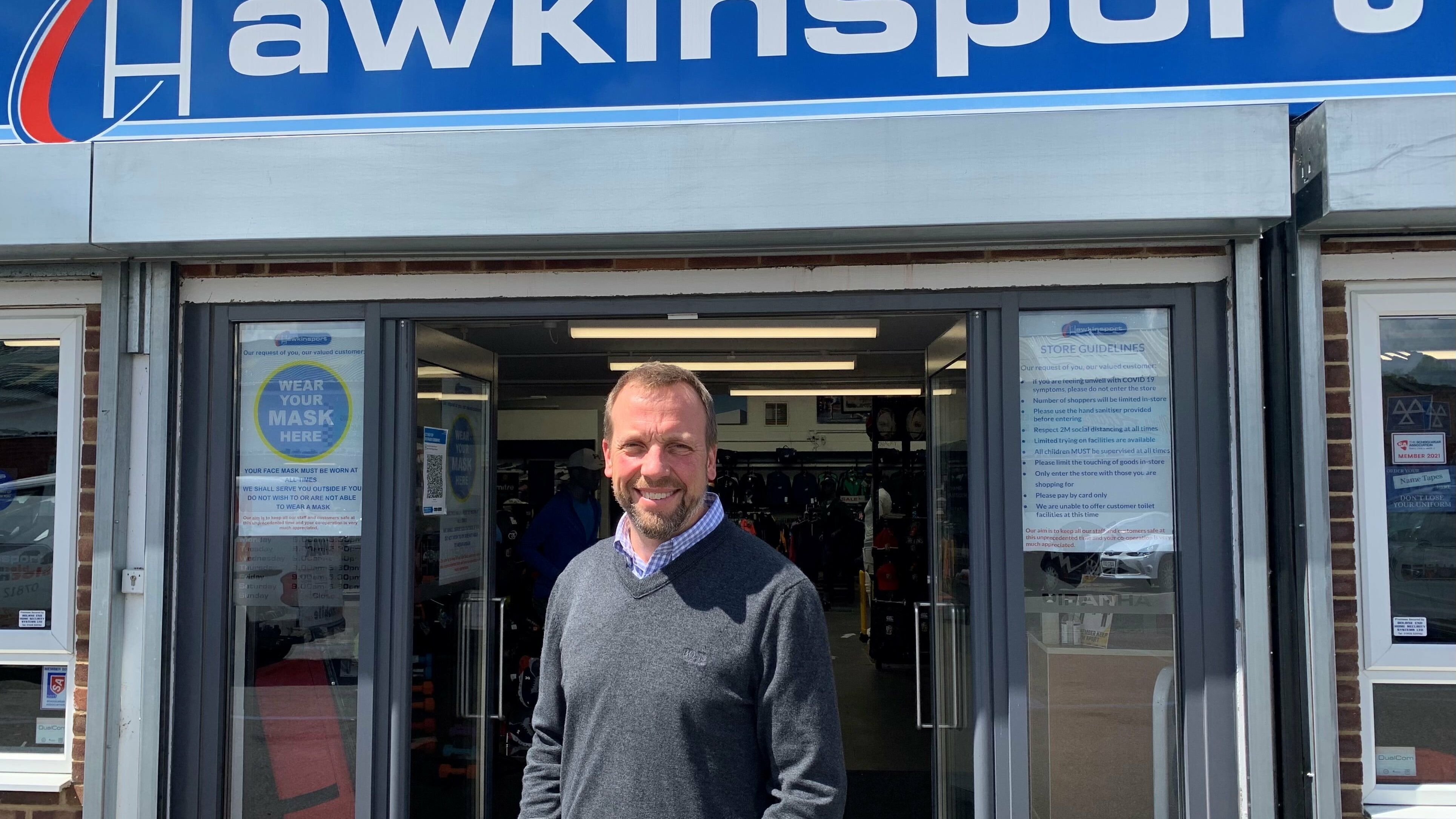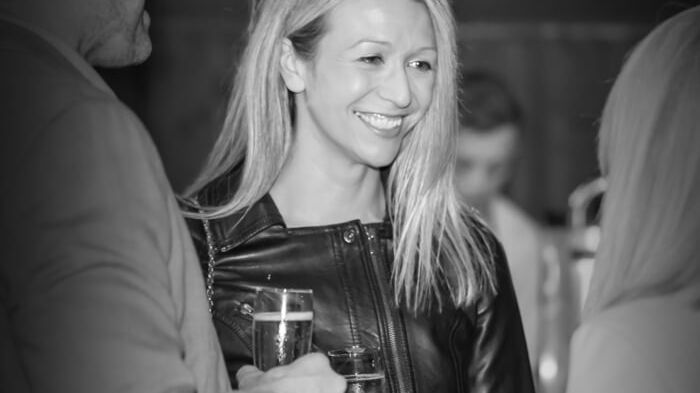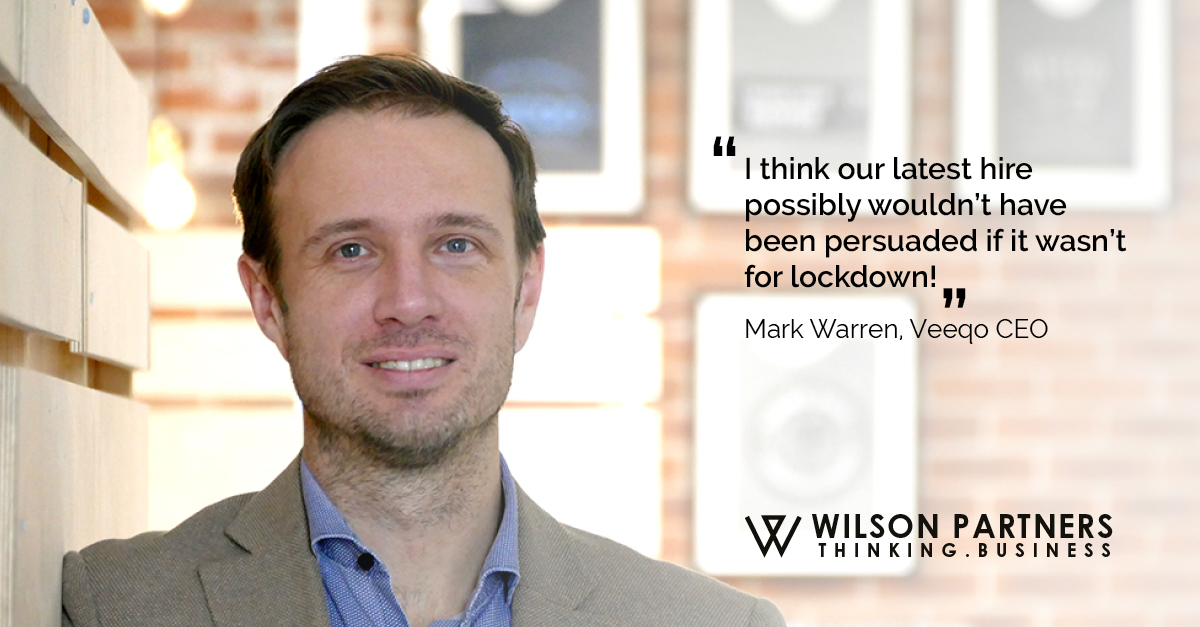
Learning the hard way in retail – Interview with Matt Warren, founder of Veeqo
We were really lucky to catch up with self confessed geek and serial entrepreneur, Matt Warren of Veeqo and learn what makes him tick.
Matt started his first business in his early twenties after a dispute with a boss led to a mutual parting of the ways. Following this, he set up a website selling watches and was turning over £1m inside 12 months. Cue lawsuits from the watch brands and Matt subsequently lost the business, before embarking on the next one (also watches) and ultimately leading to him selling over £60m of watches online and leading him to his latest venture, Veeqo which was borne out of the frustration of not having a back-office system that was integrated and up to date. Passionate about Wales and its people, Veeqo employs 83 staff and last year processed over £1bn in GMV.
Q – Your first business grew from a ‘mutual parting of ways’ following a disagreement with your boss; how did you keep your head clear and keep faith in your business idea?
I’d always been quite successful and then I got fired which really brought me back down to earth. Even back then, IT was a hot space and I certainly wasn’t worried about getting another job. But another former boss had said they could get hold of ‘expensive watches at a discount’ so I thought I’d do a bit of research and found nobody was selling them online and I decided to build my own website.
The site was running and then I just waited…..for 3 weeks, I had mortgage bills to cover and nothing was happening so I was ready to sign a contract for a new job then the next morning, in popped the first order. I didn’t have the watch that was ordered, so after sourcing it, I think about made about £2! But I had a proof of concept that people would buy expensive watches online. Had I waited another day or 2, I could well have taken that job and ended up on a completely different career path.
Q – So were you a procurement site?
Effectively yes, We were testing the market to see whether people would buy watches. The following couple of weeks we had 3 more sales. We were sourcing them from the US. The exchange rate was good and so that’s how we did it. Buying from US, shipping to UK and then sending them out – and the customers would wait just a few days. I built the site myself, worked out of my flat, so overheads were very low.
Q – What learnings did you take from your original employer as you started on your own journey?
From my first 2 IT jobs, the first was a billion dollar corporate and I’m really glad that I worked there first. I joined as an apprentice on a salary of £5k a year and had a purple Corsa. I think working for a big corporate is something everyone should do. Entrepreneurs these days are encouraged to go straight into whatever they want to do, but corporates aren’t evil and bad, there’s a lot of good people, discipline, skills that are really useful when you’re operating at scale as you need to have systems and processes in place. I’m certainly glad I spent the first part of my career in that environment.
Q – There were many ups and downs with the watch business. How did you maintain focus and financing throughout? Do you have any allies today that were with you then?
Bar my father passing away, it’s by far the most stressful thing I’ve experienced. We had a lot of litigation going on with the watch companies who were disgruntled at us discounting online. They poured tonnes of money into lawyers, costing us almost £100k per month in legal fees, but we had to do it to give ourselves any chance of defending ourselves. That’s what sucked all the cash from the business. To see this very successful, cash generative company making 100’s of 1000s of net profit every year, as a 25 year old I had a great lifestyle, it was amazing. But it soon became obvious the company was no longer viable. I’m now an expert in IP infringement as a result.
There were a couple of key people who joined me in the next business, but we looked after everyone, I took out a £150k personal loan, sold the car, house etc just to limit the debts and pay the bank.
Q – Losing the business must have given you some harsh financial lessons. What was the most difficult to swallow and how have you used this to your advantage with Veeqo?
Yes, it was pretty brutal! Driving a Lambo, living in a £1m house, we’d just had a young son, it was a lot of upheaval. We went a few months without money, and whilst I’m not an egomaniac, there were people who wouldn’t look me in the eye and that was hard to take. It was a difficult few years.
The next move was selling more expensive luxury watches but this time doing it properly and buying directly from the watch brands and so we became approved resellers. We had no funds and it was a bit tricky as some of these had previously sued us. On top of that we had to have a physical store, so we found a really cool site off bond street, creating a digital store with the world’s biggest plasma screen. No money, no salary for a while until we got going.
Q – How did you fund it?
We managed to get 4 angel investors to put in £50k each.
Q – Veeqo is born out of you becoming frustrated with your own business’ operational hinderances and also identifying a gap in the marketplace. How did you manage to work on a start-up while running a successful business?
We ended up acquiring a store, we had 3 different websites, selling some on Amazon as well as the 2 stores and none of the back end systems talked to each other.
I tried various systems out there and nothing really worked so we had to make it work.
Q – So the issue was that you didn’t have a real-time view of your stock?
Basically yes, until we built our own. So just having one system that gives an overview of all the stock everywhere and helping us maximise leverage of our assets. That gave us a real advantage.
Q – So how did you go about developing that?
My background is a programmer, although I knew I was rusty. So I invested some of my personal money, hired some developers to build out a basic version, developed a brand as well and then I went onto Seedrs and did a small fundraising for £30k to give us enough room to develop a system.
That helped us make the product better, we managed to get a couple of Beta Customers and then one of the angel investors contacted me directly, he loved the whole business and he offered £120k to invest in Veeqo.
Q – At what point did you realise that this was a product that not just solved your problems but could that there was a market there for those problems to be solved?
From day one I wanted this to be a technology company and a global platform. I’d been selling watches for 10 years, I don’t even wear one now, I didn’t really feel what difference I was making to the world.
“being able to provide high quality jobs and serious money for the local economy – that definitely gets me up in the morning”
Q – What get’s you up in the morning?
Tech is definitely my passion and on moving back to Wales after my father passed, I realised just how shockingly poor it is, one of the poorest regions in Europe which is ironic given our proximity to London, one of the richest. So a driving force for me is being able to provide high quality jobs and serious money for the local economy – that definitely gets me up in the morning. It makes a big difference to your motivation when you’re doing something more than for your own personal gain.
Q – Developments in technology are so swift, how do you ensure that your business model is sustainable?
It really helps having a technology background and understanding the balance between how much time you spend versus the commercial benefit and ensuring it is aligned to the strategy. It’s still hard as everything moves quite quickly.
Q – How do you manage investor relationships?
We’ve got 2 big angel investors and 3 relatively minor investors. I think the bigger you get, those relationships get easier. Often with Angel investors they tend to shoot from the hip and might be influenced heavily by their background. Versus having someone like Octopus involved, they’re a lot more professional.
Q – The Coronavirus pandemic has driven more people to buy online. How has Veeqo managed to stay ahead of this exponential growth for your clients?
I think in the first few weeks in March we went into war-gaming mode. Assuming the worst that online companies would struggle, so we planned for a worst case scenario, but it never really materialised, in fact it became the opposite, so we’re very lucky. But I really feel for all the companies affected, especially in the hospitality sector where it must be incredibly difficult for them.
Q – How else has the pandemic affected your business? We were already 60/40 split working from home whereas now we’re 100%. We’re all set up really well but the lack of face to face and the mental health element is really challenging. Missing the water-cooler moments, you don’t just set up a Zoom call to talk about what you watched on Netflix last night. We’ll definitely be retaining an office albeit probably smaller and then we’ll look to host 2 retreats every year for the whole team to get together and recharge the ‘face to face batteries’ for two or three days.
Q- Culture is a big deal for your businesses – how would you describe your culture?
I think most people would describe it as very open, friendly and transparent which is broadly what we are after. People are often surprised at our friendliness, and our transparency too – we share everything bar peoples salaries. Some people think we share too much, even if there’s a bad month or some kind of problem, but it’s important to us to be that open.
Q – You are passionate about supporting business growth in South Wales, is this a challenge for you in attracting the right talent, or do you believe that there’s talent wherever you go?
I think it’s a major issue. I believe there’s 2 kinds of talent. Raw talent and experienced talent. In South Wales there’s plenty of raw talent, as much as we want which is great, but we don’t have any experienced talent in the region. As a scaling company, we need people who’ve been there and done it. You know, the VP of sales, VP of Growth, VP of product. That doesn’t exist in Wales, doesn’t really exist in the rest of the UK. Most of it exists in the US for that kind of level. So we’ll hire senior positions wherever we can find them. So for example our head of product is in Toronto, she’s amazing and she’s helping train our product managers up over here. Head of Marketing is in London, he’s ex transfer-wise, AirBnB, that just doesn’t exist down here. So we’d like to hire locally where we can, but we won’t compromise on quality.
Q I guess the pandemic has helped people get their head around that even though you were ahead of the curve.
Yep, you’re right I think our latest hire possibly wouldn’t have been persuaded if it wasn’t for lockdown!
Q – What’s the exit strategy?
Well we’re committed to our investors and when we set up in 2013 we said we wanted to be £100m business and for us as a SaS business that means revenues of around £10m. Since then the potential is more and we should reach those milestones in the next couple of years.
“I’d definitely challenge start-ups to think about their strategy more”
Q – How have you built your strategy, have you had training, have you learned on the job?
I definitely winged it a lot, that’s the truth. My first business plan was about 4 pages long. Looking back, thinking and writing about strategy would have been a lot more valuable, I certainly didn’t value it as much as I do now. We’re actually going through a process of rewriting the company strategy, as even now a lot of it is in our heads and based on assumptions, so having it actually written down gives you the opportunity to challenge those assumptions which starts good conversations. I’d definitely challenge start-ups to think about their strategy more.
“identify what it is that you’re great at and stay focussed on that”
Q – If you had to start over again what one piece of business advice would you take with you?
The one piece of advice I always give is stay focussed on the one thing you’re really good at and don’t go beyond that. I’ve made this mistake with 3 separate businesses now. With Blitz we were really lucky, we got to £1m turnover in the first 12 months and we were like, ok that’s easy we’re really successful, making a ton of money, what can we do next? I know, let’s sell jewellery! So we went off, started building a website, learning about the business, the suppliers and it became a massive distraction, growth slowed down looking back it was a mistake.
Similarly with Veeqo I had this vision it was going to do everything, shipping, inventory, purchasing, suppliers. But initially people only came to us for a couple of things, well mainly the Royal Mail integration. But we’d built all these things and the quality was ok, but certainly not a differentiator over our competitors. Had we just focussed on the Royal Mail integration we’d have had more success, quicker and we could have leveraged that to support our growth. So really identify what it is that you’re great at and stay focussed on that.
Well Matt certainly learned a lot about retail and a few harsh lessons, but an exciting ride and one that’s ultimately paid dividends. We wish Matt and Veeqo every success in the future.
Veeqo is the inventory and shipping platform for ecommerce. Imagine if selling online was as easy as buying online. Veeqo exists to make this a reality for hundreds of businesses.
Guide to selling your business
Your simple guide to helping you maximise the value in your business.
